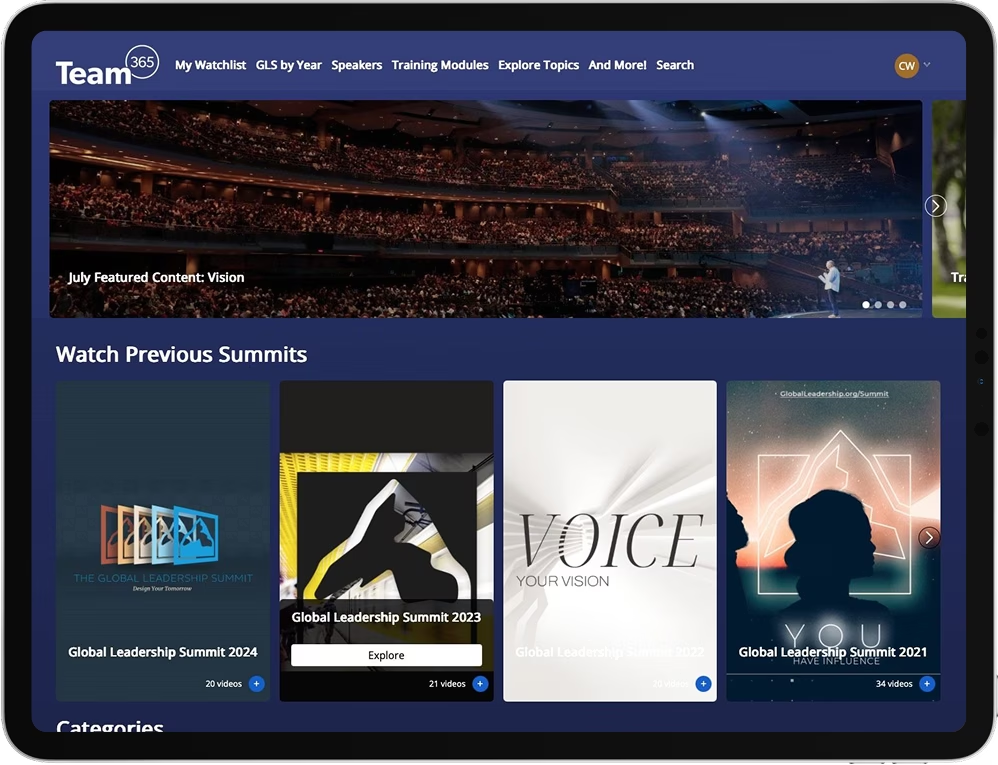On May 5, 2020, the GLSnext Event Series hosted Chris Voss for a highly-relevant online event on Facing Fear in Uncertain Situations. Drawing upon 24-years of real-life experience as an FBI hostage negotiator, Chris shared seven key relational intelligence strategies that he used to lead people through unpredictable and fear-filled situations. If the team you lead, or anyone in your life, is struggling with fear in this season, this can’t-miss episode will help you calm the situation and help them move forward.
Get free, instant access to GLS Podcast Episode Show Notes. Leverage episode summaries, key takeaways, reflection questions, resources mentioned, related links and applicable downloads.
SUMMARY:
On May 5, 2020, the GLSnext Event Series hosted Chris Voss for a highly-relevant online event on Facing Fear in Uncertain Situations. Drawing upon 24-years of real-life experience as an FBI hostage negotiator, Chris shared seven key relational intelligence strategies that he used to lead people through unpredictable and fear-filled situations. If the team you lead, or anyone in your life, is struggling with fear in this season, this can’t-miss episode will help you calm the situation and help them move forward.
KEY TAKEAWAYS:
- This coronavirus situation feels a bit like the movie Groundhog Day–the same day over and over. The point of the movie was that Bill Murray's character just needed to get a little bit better every day.
- As an FBI hostage negotiator, I had to lead when I wasn’t in charge. Stressful and unrelenting situations call for a more relationally-intelligent type of leadership.
- The definition of stress is that it’s overwhelming and unrelenting. Unrelenting means you don’t know when it is going to be over.
1) Don’t pay attention to the media.
- The media heightens your awareness of the bad going on in the world.
2) Communicate in a late-night FM DJ voice.
- A low, calm voice causes an involuntary response with the neurons in your brain that reassures people and calms them down.
3) Say, “I want you to be scared.”
- Telling people to be scared actually snaps them back to a rational mindset. It actually causes them to think of all the reasons they should be scared.
- The quickest way to de-activate fear is to call it out.
4) Instead of saying, “We’re all in this together” say, “I know you’re scared.”
- We want people to know we are with them, but telling them we are with them is not an effective way to soothe their fears.
- If someone is in quicksand, it doesn’t do any good for you to get into the quicksand with them.
- Instead, say, “I know you’re scared.” This is what I did with kidnap victims.
- In low-stress situations, you can be more tentative with your words (i.e. “it seems…”) but in high-stress situations people want to know that you know.
- Use phrases like this: “I know you’re scared.” “I know you’re angry.” “I know you feel alone, abandoned and isolated.” These phrases communicate “I’m with you” more than just saying “I’m with you.”
5) Don’t say. “but …”
- If the word “but” is getting ready to cross your lips, it’s a good time to go silent. Nobody wants you to put your “but” in their face.
- Instead go quiet and let your words of understanding sink in.
6) Call out negative emotions.
- It reduces fear to call out fear.
- Start a difficult conversation by calling out all of the things the other person might be feeling—anger, disappointment, fear.
- Calling out the negative emotions gives you the best chance of mitigating fear.
7) Create predictability.
- In crisis, trust = predictability.
- You may not know when or if you are going to have good news, but you can relieve people of some stress by letting them knowing when they are going to hear from you again.
REFLECTION QUESTIONS:
1. Take a few minutes to reflect on how the coronavirus pandemic is affecting your leadership right now.
- What situations are concerning you?
- How are the key people in your life responding?
2. With the situation(s) you identified above in mind, go through the seven tips on how to lead in stressful, unrelenting situations. Which one would be most relevant for you to try right now?
- Don’t pay attention to the media
- Use a late-night FM DJ voice
- Say, “I want you to be scared.”
- Don’t say, “We’re in this together”. Instead say, “I know you’re scared.”
- Don’t say, “But…”
- Call out negative emotions
- Create predictability
3. What would it look like for you to implement that one tip in the situation you identified? Make a plan to try that tip today!
RESOURCES MENTIONED:
RELATED LINKS:
Related
Ep 196: A Lifetime of Leadership (with John C. Maxwell)
Have you ever wished you could sit down with someone who has truly mastered their craft? Michael Jordan on winning; Mozart on music; Leonardo da Vinci on creativity. Not just to review their highlight reels but to unpack all the lessons they learned across their lives? Well, that’s what today’s conversation feels like because today we get to listen to John C Maxwell talk about leadership.
Ep 194: A Look Back at 2025 (with Whitney Putnam and Eric Case)
As 2025 wraps up and 2026 gets started, we thought we’d take a look back on all the great conversations we’ve had over the past year and pick a few of our favorites to share with you.
Ep 192: Creating Spaces Where Productivity, Creativity and Well-being Soar (with Bradley Rapier)
Bradley is an award-winning, Emmy-nominated choreographer with over three decades of experience in dance, production and leading teams and talent from Hollywood to Broadway. Whether dance and choreography is your thing or not, what Bradley teaches in this conversation with GLN President and CEO David Ashcraft is what happens when people feel engaged and connected, and how we as leaders can facilitate that engagement.
Leadership That Lasts
Team365 isn’t just a platform. It’s a commitment to grow, lead and live with purpose — every single day. Whether you’re here for content, community or clarity, you’re in the right place. Your leadership matters. Let’s keep going.





